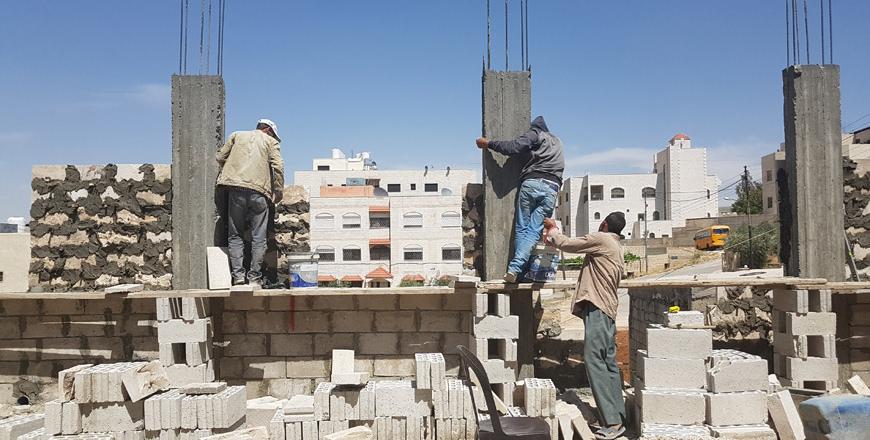You are here
New building by-law divides sector
By Dana Al Emam - Oct 29,2016 - Last updated at Oct 29,2016
AMMAN — A recently endorsed by-law that seeks to regulate building codes in cities and villages has stirred debate among stakeholders.
In phone interviews with The Jordan Times on Saturday, some stakeholders said the by-law would negatively affect housing investments, while others said it was a long-awaited step to regulate the sector.
Zuhair Omari, president of the Jordan Housing Developers Association (JHDA), said the by-law, which the Cabinet endorsed late September, disregards buyers’ needs and financial capabilities, describing them as regulations of “luxury”.
The by-law treats all building classifications — A, B, C and D — equally in terms of registration fees and the number of parking spots, Omari said, although regulations in the 1950s created classifications C and D to cater for the needs of people with low and middle incomes.
Omari said, this would increase housing prices for the average citizen and result in a wider gap between housing prices and people’s declining purchasing power.
In addition, he said the by-law “seeks to collect money from housing investors”, adding that new fees and penalties are in general “very expensive”.
Under the new by-law, buildings that due to technical reasons cannot add parking lots must pay JD3,000 for each unavailable parking space, the JHDA official said.
The penalty, according to Omari, is a sign that authorities do not seek to improve the housing regulations but to collect money.
The problem is not limited to the housing sector, but extends to the commercial sector, as the by-law disregards performance differences between big, medium and small-sized commercial establishments, Omari said, adding that this harms small businesses.
While Jordan Engineers Association’s (JEA) President Majid Tabba agreed with Omari on the need to revisit fees in the new regulation, he said organising the building and construction sector is a priority.
“The by-law is a step in the right direction,” he said, adding that the by-law limits haphazard construction that previously occurred without the supervision of engineering firms.
Increasing licence fees for existing buildings, where a licence is obtained after the building is constructed, seeks to limit the unlawful practice and to ensure that safety and security standards in buildings are met.
Omari noted that negotiations over the by-law did not include the JHDA, highlighting the sector’s demand for dialogue, as the new regulations will push several housing investors to leave the market.
Real estate trade volume over the first nine months of this year reached JD5.278 billion, registering a 3 per cent drop compared to the same period last year and a 10 per cent drop compared to 2014, according to the Department of Lands and Survey’s statistics.
Officials at the Ministry of Municipal Affairs were not available for comment.
Related Articles
AMMAN — The Cabinet on Monday endorsed amendments to a by-law regulating building codes despite the controversy surrounding some of its prov
AMMAN — Housing developers on Sunday said they will resort to escalatory measures to protest against the 2018 building by-law.Zuhair Omari,
AMMAN — Housing investors have protested the Greater Amman Municipality’s (GAM) endorsement of the 2017 building by-law before the conclusio
















